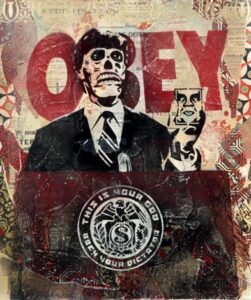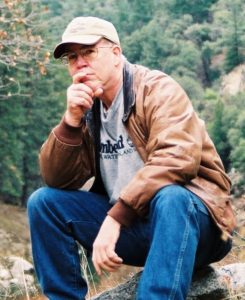 I would like to spend some time today discussing perspectives and opinions; with the first few pages being devoted to the differences between the two words. Perspective is most often used to describe a person’s viewpoint; the way they look at something. For instance, someone watching a baseball game from seats alongside the first base line would have a different perspective on the game that someone watching it from seats behind home plate, or way out in center field. The word is also by authors when writing novels; telling the tale from the first, second, or third person narrative.
I would like to spend some time today discussing perspectives and opinions; with the first few pages being devoted to the differences between the two words. Perspective is most often used to describe a person’s viewpoint; the way they look at something. For instance, someone watching a baseball game from seats alongside the first base line would have a different perspective on the game that someone watching it from seats behind home plate, or way out in center field. The word is also by authors when writing novels; telling the tale from the first, second, or third person narrative.
Although they are somewhat similar in nature, a person’s perspective, and their opinion, are not the same thing. Think of it like this; a person’s perspective is the position they view things from, the raw sensory data that flows into their cranium. While inside their head that data passes through all kinds of filters; biases, prejudices, life experiences, educational background, and all sorts of other things. Once it has made its way through those filters, it has been molded into an opinion. Therefore, an opinion is a conclusion one draws about an event which is based upon their perspective; how they view the world around them.
Perspectives can change; at least they ought to as one grows older, and hopefully wiser. For example, when I was a teenager I used to think that anyone over the age of 35 was an old fogey. Now that I am 66 years of age I now think that a 35 year old is still in their youth; while teens are so young that they just graduated from potty training. In that little, but totally accurate, analogy, my perspective would be the age I was, and my opinion would be my thoughts people of certain ages. Do you now see the difference between the two words? I hope so, because I’ll be talking about them a lot over the course of this essay.
The problem with perspectives is that they consist of so many things that can distort a person’s opinions that one could write an essay devoted to how all of them play into forming that person’s opinion. For instance, some people absolutely love cats; while I hate and despise them. My hatred can (probably) be traced back to an event that happened before I had learned to walk. As related to me by my parents, I was crawling across the floor one day and I got too close to their pet cat, (invaded its personal space you might say), whereupon it batted me across the eye; nearly taking my eye out in the process. That singular event may have left a deep psychic scar; explaining why my opinion of cats is so negative; it is because it has passed through the filter of my own life experiences.
People can hold opinions that they cannot explain. Have you ever met someone that, at first glance, you did not like, or trust; but you cannot explain why you had those feelings towards this total stranger? Have you ever met someone who said that they hated something, and when you asked them why they hated it so much they said, ‘I don’t know. I just do.’ Those are both examples of opinions being formed that someone has no explanation for. You may hate the Republicans, or the Democrats, solely because you were raised in a family that hated them; the opinions of your parents were passed on down to you. You may hate and despise people of the opposite sex because you once had a partner who cheated on you, or broke your heart.
You see, as I said, there are myriad filters that form a person’s perspective; and for each of us they are uniquely individual; no two people seeing things from the same perspective. That poses a problem if we begin to believe that our own individual perspective is the only perspective that matters; not taking into consideration the perspectives of others. But that is only part of the problem; there is also the inaccuracy of the information we use to form our opinions; not to mention how our opinions are biased by our own individual perspectives.
The problem with opinions can be found in the very definition of the word itself, ‘a view or judgment formed about something, not necessarily based on fact or knowledge.’ (My emphasis) If you are told an outright lie by someone, and you form an opinion based upon that lie, then your opinion will be flawed. If you form an opinion on a subject that you know very little about, then your opinion may be flawed due to lack of information on the subject matter. If you form an opinion based, not upon facts and evidence, but upon how you feel about a particular subject, your opinion will be flawed because it is not the result of critical thought; it is an emotional response.
The easiest way, at least this is what I have found, to discover if a person’s opinion is the result of any kind of critical thinking, is to challenge it; ask them to defend it with facts and evidence. If they cannot, if they become defensive and start calling you names, then most likely their opinion is based upon something other than facts; that it is the result of having either been given to them by someone else, or it is the result of the filters of their perspective producing a conclusion that is based solely on an emotional reaction to the subject matter.
Each of us (if we want our opinions to be taken seriously) has to be on constant guard to ensure that our opinions are fact based; not the result emotional reactions. That is of course, unless society in general has degraded so much that facts (the truth) no longer matters; which seems to be the case these days. I will be the first person to admit that I am very opinionated, and that I feel very strongly about my opinions. That is okay; so long as the person is able to defend (support) their opinions with facts and evidence. However, one must be willing to change their opinion on something if they are provided with facts that clearly prove that opinion to be faulty. That is where a great many people fail; they lack the intellectual integrity to admit that their opinion is/was wrong.
Although we shouldn’t, people lie all the time. Some of those lies are what are known as ‘little white lies’; inconsequential in the grand scheme of things. An example might be how someone exaggerates the facts of a story they are telling; such as how they caught a 16 inch fish, when in fact it was only 10 inches long. However, when lies form the foundation upon ones overall opinions, or their core beliefs regarding the world they live in, that’s where the lie becomes a serious problem. If the data (information) that people use to form their opinions is false, then those opinions will be flawed; and with most people being either too busy with their lives, or too lazy, there is a high probability that most people are not going to spend the time needed to fact check every bit of information they use to form their opinions.
The powers that be (those in control of the system) not only know this, they count upon it. They know that, since most people won’t bother to fact check them, they are free to lie about things at will; feeding us bullshit stories, propaganda, and promoting their agenda with very few being able to see what is happening. The news media routinely does this when they omit critical parts of a story they are covering. Our elected officials due this because they know that if they told the truth no one would vote for them. Our educators do it because they are merely repeating the lies they were taught to believe when they made their way through the public indoctrination system.
With all the lies we are being bombarded with, is it any wonder people hold opinions on things that could easily be disproven with just a few minutes of research? I won’t bother providing you with any examples of this, but I will ask you to ask yourself to provide some evidence that your opinion is valid. I’m not asking you to support your opinion by saying that you ‘think’ or that you ‘feel’ that your opinion is valid; I am asking you to present facts and figures that support your opinions. If you cannot do that, even if it is just to prove to yourself that your opinion is valid, then why should anyone else take your opinion seriously?
You can bet your sweet ass that, if you cannot defend your opinion with facts and evidence, I’m not going to give it any consideration whatsoever! However, if you can defend it, and if your facts and evidence prove that my opinion was wrong, then I will admit that I was wrong, and I will revise my opinion so that it conforms to the facts. That is where those who value the truth differ from the teeming mass of society that believes whatever they are told; those who are led around by the nose by a constant stream of lies, propaganda, and psy ops; they simply do not bother to verify the information that they are basing their opinions on. They know this too, even if it is at a subconscious level; it explains why they become defensive, and hurl insults at those who challenge their opinions. It is because, deep down, these people know that they are unable to provide any facts and evidence to support their opinion; it is a defense mechanism designed to prevent them from appearing foolish, ignorant, or stupid.
The sad truth about the country we live in today is that the lie has become so pervasive that most of the opinions people hold today are based upon falsehoods; with those who have bothered to seek out the truth being attacked and denigrated by the majority who swallowed the lie hook, line, and sinker; fulfilling Orwell’s prophecy of, “During times of universal deceit, telling the truth becomes a revolutionary act.”
Throughout the ages philosophers across the world have written about perspectives and opinions; with Plato’s Allegory of the Cave being a perfect example. However, as Plato’s Allegory is too lengthy to include here, let’s go with something a bit shorter. How about the parable of the 5 Blind Men and the Elephant? The parable goes as follows:
“5 blind men are asked to describe an elephant through touch alone. The first man touches the elephants leg and states that the elephant resembles a tree. The second touches its trunk and says that it resembles a snake. The third touches its ear and says that it resembles a fan. The fourth placed his hands upon the elephants side and said that it resembles a wall. The last grabs hold of the elephants tail and declares that it feels like a rope.”
Now, were any of the men wrong in how they described what they had felt when they touched various parts of the elephant’s body? No, the disparity between their descriptions is due to the fact that their perspectives differed. Had each of them examined the elephant from front to back, top to bottom, their descriptions would, most likely, have been quite similar. However, as each of them only touched one part of the elephant’s body, their descriptions were 100% accurate from their perspective.
The moral of this story, at least as I see it, is that the more raw data (information) a person has on a subject, the more accurate the opinion they form upon that subject will be. Now I would like to share one final analogy with you; one that I made up just for this occasion.
I would like for you to picture a village, out in the middle of nowhere, where the inhabitants live in isolation from the rest of the world. Now imagine that these villagers have been told, generation after generation, that there is nothing worth seeing outside the boundary of their village; that they should seek contentment with life inside their village and not worry about what is going on in the outside world. So, these villagers go about their lives never wondering what is happening in the world beyond their village.
Now imagine that, one day, one of the villagers begins to wonder what life outside the village might be like. As no one has ever ventured beyond the village, he can’t satisfy his curiosity by asking anyone; so he decides to climb part way up a nearby mountain to see if he can see anything interesting beyond his village. After climbing part way up the mountain, he sets his gaze beyond his village, and to his amazement he sees a lush field of grass and wildflowers, with a stream meandering through it; surrounded by low lying hills. Excited to share what he has discovered, he climbs back down to tell the other villagers what he has seen; only to be met with scorn and an overall lack of interest in what he discovered.
Although he is disappointed over the reaction to his newfound information, his curiosity is piqued; so he decides to climb further up the mountain to see if there is anything worth seeing beyond the low lying hills that surround the lush field of grass and flowers. Upon reaching a point about 2/3 the way up the mountain, he once again sets his gaze beyond the boundary of his village, and is astonished to see a massive lake; with another village sitting alongside it. Once again, he climbs back down to reveal to the other villagers what he has seen; to once again be met with scorn and apathy. In fact, people grow weary of his wild stories (conspiracies) that there is anything worth seeing beyond their village.
Undeterred, he once again returns to the mountain, intent upon climbing to the top to see what else lies beyond his village; only this time he tells himself that he will keep what he sees to himself; as obviously no one in the village below has any interest in learning the truth; let the villagers below wallow in ignorance and apathy; for he knows that what he has discovered is the truth.
Does that little parable cause you any discomfort? If so, then good; for it describes those of us who have taken the time, and expended the effort, to seek out the truth; while the remainder of society is content to wallow around in their ignorance and apathy. What I find interesting though is the fact that there are a multitude of similar analogies found in the books we read, the music we listen to, and the movies we watch; yet nobody seems to notice them; or they do not seem to care that they are reflections of the world they live in.

Ayn Rand
Let’s start off with some of the books and short stories people might have read over the course of their lifetimes. Right off the top of my head the books Anthem by Ayn Rand, Harrison Bergeron by Kurt Vonnegut, Fahrenheit 451 by Ray Bradbury, Brave New World by Aldous Huxley, and of course, 1984 by George Orwell come to mind.
The category of music is a bit more limited, with the only song that immediately coming to mind is the 20 minute epic, 2112 by the Canadian rock band RUSH. The song is loosely based on Ayn Rand’s novel, Anthem, and tells the story of a futuristic society that is run by priests; who control everything, “We’ve taken care of everything The words you hear, the songs you sing The pictures that give pleasure to your eyes.” (Lyrics by Neil Peart)
However, just as in my curious villager analogy, a man discovers an old guitar and takes it to the priests to show them his wonderful discovery. The priests, instead of being overjoyed, reject his presentation; grinding the guitar into pieces under their feet. Dejected, he goes out into the wilderness where he has a vision of how the world could, or used to be. Deciding that life was not living in a world were the priests control everything, he takes his life; whereupon the former occupants of the planet return, “Attention all Planets of the Solar Federation We have assumed control.” (Ibid)
 That leaves us with the films people may have watched. The 3 that immediately come to mind are The Matrix, Logan’s Run, and They Live. The thing about all the aforementioned examples, books, songs, and movies, is that they all tell stories about societies that are ruled by extremely centralized systems of government, and that freedom of thought and action are almost non-existent; yet there is always a protagonist or two who seek to wrest control of their minds away from the ‘system.’
That leaves us with the films people may have watched. The 3 that immediately come to mind are The Matrix, Logan’s Run, and They Live. The thing about all the aforementioned examples, books, songs, and movies, is that they all tell stories about societies that are ruled by extremely centralized systems of government, and that freedom of thought and action are almost non-existent; yet there is always a protagonist or two who seek to wrest control of their minds away from the ‘system.’
Although America is not there yet, we are rapidly approaching that type of world. Look at all the means they have of controlling what we can and cannot say; can and cannot do; and pretty soon, (if Elon Musk and his Nueralink become a reality) think. We have political correctness, hate speech, and censorship by social media platforms of things that go against what the system tells us. We have laws out the yin/yang that tell us what we can and cannot do without being ‘punished.’ Soon, if Musk and his ilk get their way, our brains will be interconnected to a centralized computer system; basically turning us into drones of the system. And I don’t even want to get into what will happen to the little remaining freedom we have if they implement a Central Bank Digital Currency (CDBD) tied to our social credit scores; that’s biblical number of the beast kind of shit right there!
Before I move on to Part 2 of this essay there are a few remaining points I would like to make about my curious villager analogy. The first point I wish to make is that the opinions of the villagers that there was nothing worth seeing outside their village was not the result of any independent study of their own; it was just something that had been told to people from one generation to the next; going back who knows how long. In other words, their opinion was based upon hearsay; while the opinion of the curious villager was the result of what he had seen with his own two eyes; in other words, fact (truth).
Therefore, when the villagers rejected him for trying to tell them, they were doing so from a very narrow viewpoint (perspective) while he had broadened his perspective by climbing up the mountain so that he could see beyond the boundary of his village. If you liken what he did to the pursuit of knowledge, you can see how those who do not bother to research things, (crises, politics in general, and current affairs) are forming opinions based upon very narrow perspectives; yet they always seem to reject and dismiss the opinions of those who have done any amount of research on the subject matter; coming to conclusions that differ with their own.
That’s Point 1. Point 2 is the fact that the curious villager could have been satisfied with climbing only high enough to see the lush field full of grass and wildflowers, with the stream meandering through it. His perspective would still have been broader than the perspective of the villagers below, but it would not have been as broad as it could have been if he climbed to the summit of the mountain. If we again liken climbing the mountain to acquiring knowledge, we see that the more knowledge we acquire, the broader our perspective will be; which is usually accompanied by a shift, or alteration, of the opinions we hold.
The final point I wish to make is going to be prefaced with a question. Do you think that, once the villager reached the top of the mountain, that he could see all that there is to see; understand all that there is to understand? What about the birds that flew above his head; was their perspective on the world below not broader than his? What about any airplanes that may have been flying way above him; would the perspective of the passengers be not broader still?
The reason I bring this last point up is because we humans, with all our scientific and technological advancements, often think of ourselves lords and rulers of our domain; having unlocked the secrets of the atom and DNA. We often forget, or choose to reject the belief, that Yahweh sits in the heavens above us. The point I’m trying to make is, our knowledge and understanding (perspective) of things pales in comparison to His. As the Book of Isaiah tells us, “For as the heavens are higher than the earth, so are my ways higher than your ways and my thoughts than your thoughts.” (Isaiah 55:9)
The entire point of this protracted first segment is this; our opinions are based upon our perspectives, and for our opinions to be accurate we need to broaden our perspectives as much as possible; while at the same time, keeping in mind that we will never know all that there is to know. The minute we tell ourselves that we have learned enough, that there is no need to climb any higher up the mountain of knowledge, we erect walls around our minds that prevent us from seeing all that lies beyond.
The only question left to ask is; how high up the mountain are you willing to climb in pursuit of the truth; or are you content to stay in the village; content to live your lives believing what has been spoon fed to you by others?
And that ends Part 1. I hope to see you all again in Part 2…
December 19, 2024

~ The Author ~
Neal Ross, Student of history, politics, patriot and staunch supporter of the 2nd Amendment. Send all comments to: NealHRoss@outlook.com.
If you liked Neal’s latest column, maybe you’ll like his book: The Civil War: (The Truth You Have Not Been Told). Life continues to expand for this prolific writer and guardian of TRUE American history.
